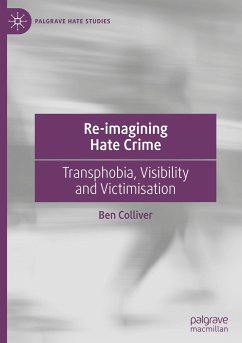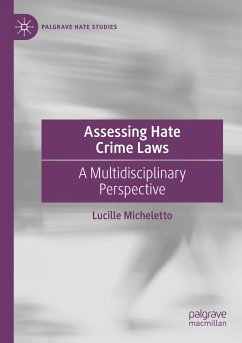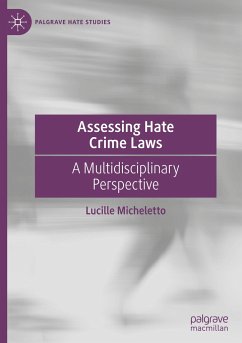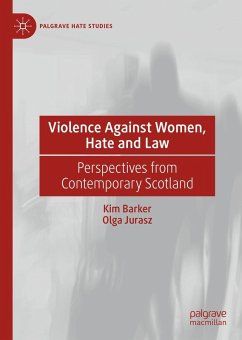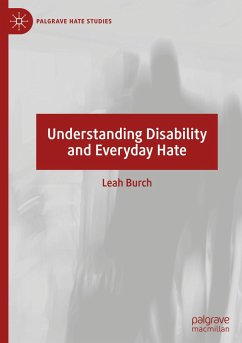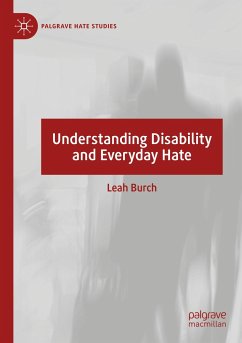
Re-imagining Hate Crime
Transphobia, Visibility and Victimisation
Versandkostenfrei!
Versandfertig in 6-10 Tagen
117,69 €
inkl. MwSt.
Weitere Ausgaben:

PAYBACK Punkte
0 °P sammeln!
This book draws upon empirical data to offer a fresh and unique perspective on hate crime victimisation, using transphobic hate crime as a case study. It adopts the lens of 'visibility' as a way of understanding hate crime victimisation and to challenge dominant theoretical and conceptual perspectives of hate crime. In adopting this lens, key aspects of victimisation are explored, including the hierarchical nature of hate crime victimisation that afford visibility to particular types of victimisation and to particular groups of people to make them 'legitimate' victims. In challenging these not...
This book draws upon empirical data to offer a fresh and unique perspective on hate crime victimisation, using transphobic hate crime as a case study. It adopts the lens of 'visibility' as a way of understanding hate crime victimisation and to challenge dominant theoretical and conceptual perspectives of hate crime. In adopting this lens, key aspects of victimisation are explored, including the hierarchical nature of hate crime victimisation that afford visibility to particular types of victimisation and to particular groups of people to make them 'legitimate' victims. In challenging these notions, this book highlights the pervasive, everyday nature of much hate crime and introduces the concept of 'micro-crimes' as a way to conceptualise the nature of victimisation that is often overshadowed by discussions around 'microaggressions' and more socially recognisable forms of 'hate crime'. Key ideas relating to space, place and identity performance are drawn upon throughout these analyses and discussions to provide a nuanced overview and conceptualisation of hate crime victimisation.





